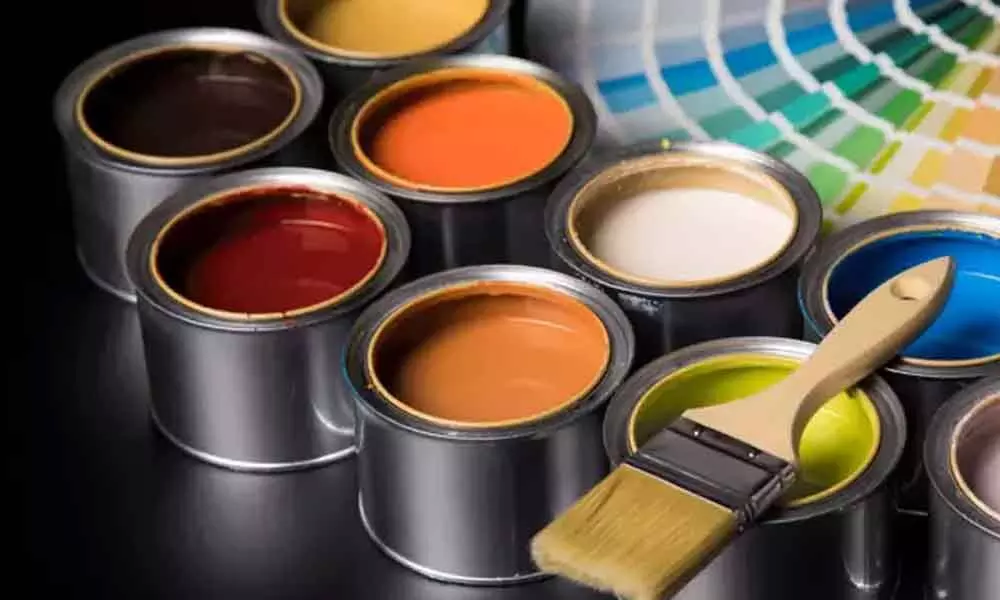Can Indigo 'Paint' the town red?
image for illustrative purpose

Indigo Paints Limited is tapping the capital markets with its simultaneous issue to raise Rs 1,169.12 crore. The issue consists of a fresh issue of Rs 300 crore and an offer for sale of 58.40 lakh shares. The price band is Rs 1,488-1,490. The issue opens on Wednesday the 20th of January and closes on January 22, Friday.
The company has three manufacturing plants located in Rajasthan, Kerala and Tamil Nadu where it makes powder paints and emulsion paints. The company started its journey in 2000 with its first plant in Jodhpur from rented premises.
It then moved to its own premises in Jodhpur. Sequoia entered the company in 2015 and then funded an acquisition which the company made of Hi-build Coating Private Limited in 2016. This company had units in Kerala and Tamil Nadu which were merged with Indigo Paints.
The companies brand ambassador is the well-known cricketer M S Dhoni. He has been signed for a three-year contract for the period 2019-2021. Even though Dhoni has retired from international cricket, he would in all probabilities continue as the brand ambassador post his contract expiring.
The issue will do well looking at the fact that the company is a niche player and is growing fast and also has some unique products. About 28 per cent of the current revenue comes from such unique products. The revenues of Indigo Paints for the year ended March 2020 were Rs 626.4crs and its net profit Rs 47.8 crore.
The EPS for the year is Rs 7.68. On a diluted basis the EPS reduces to Rs 7.68. The PE (price earning) ratio on a fully diluted basis for the year ended March 2020 is 140.25-140.43 times. This is way higher than its peers like Asian Paints, Berger Paints Kansai Nerolac and Akzo Nobel. For comparison purposes, mentioning some details of these competitors below.
Asian Paints clocked revenues of Rs 20,515 crore for year ended March 2020 with an EPS of Rs 28.25 and a PE of 97.48 times. Berger Paints in the same period had revenues of Rs 6,434 crore with an EPS of Rs 6.76 and a PE of 115.33.
Kansai Nerolac had revenues of Rs 5,305 crore, EPS of Rs 9.67 and a PE multiple of 64.19 times. Akzo Nobel had revenues of 2,699 crore with an EPS of Rs 52.13 and a PE multiple of 47.41 times.
They say small is beautiful but how much more beautiful is a matter of perception. Very clearly looking at the market mood, the Private Equity investor has pushed the company and its promoter to a level where the issue is priced at unheard levels.
To add insult to injury, we have an IPO mechanism where HNI's who are allotted 15 per cent of the IPO decide the direction of the issue. They apply for the issue with leveraged funds which multiply their money 100 times. They pay an interest cost which when translated into oversubscription, typically varies from 40 per cent to 80 per cent of the IPO price.
This premium depending on the oversubscription tends to create a false market. In the case of Indigo Paints, the cost of funding would be Rs 685 to Rs 735 assuming that the issue in the HNI portion is subscribed 300 times. With such a fancy premium existing, one cannot ask investors to not subscribe to the issue.
The advice therefore is, to simply subscribe to the issue and if you are successful in getting allotment, book profits on day one.
(The author is the founder of Kejriwal Research and Investment Services, an advisory firm)

